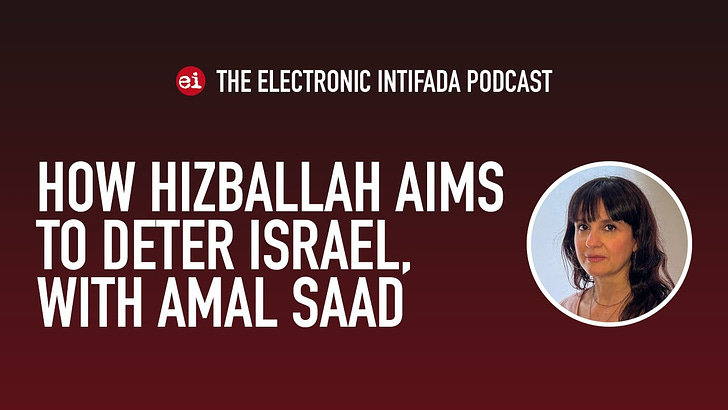First published by The Electronic Intifada, 16 January
Israel’s genocidal war in Gaza is fast threatening to spill out into a major regional war.
This war, led by Israel and its US and European backers, could stretch from occupied Palestine to Lebanon, Syria, Yemen and even Iraq and Iran.
All these countries have, in fact, been the targets of attacks since 7 October, carried out either by Israel, the US or their local proxies.
But the regional alliance that calls itself the axis of resistance has been striking back.
On Monday, Iran hit what it said was an Israeli Mossad spy base in northern Iraq, along with part of the US consulate (the Iraqi parliament has for years demanded that US troops leave the country, but they have refused to do so).
Since Israel began its genocidal war on Gaza, the Yemeni government based in the capital Sana’a (which since 2014 has controlled territory in which 80 percent of Yemenis live) has been imposing naval sanctions to prevent Israeli-linked ships from the entering the Red Sea.
This government (led by the Ansarullah movement, but rejected by the US and Saudi Arabia, who run a competing government-in-exile out of a hotel in Riyadh) says the blockade will only end once Israel’s genocide in Gaza ends. The US and UK have defended Israel by bombing targets in Yemen.
Meanwhile, Lebanon’s Hizballah – perhaps the resistance axis’s leading faction – joined the battle against Israel on 8 October. Since that day they have been trading fire on the northern borders of occupied Palestine.
In this episode of The Electronic Intifada Podcast, Tamara Nassar and I interview Amal Saad, a leading scholar of Hizballah and the resistance axis. The episode was recorded last week, before Iran hit targets in northern Iraq.
Saad is a politics lecturer at Cardiff University in South Wales and was previously at Lebanese University in Beirut. She is the author of the book Hizbullah: Politics and Religion.
We looked back at an article that Saad wrote for The Electronic Intifada 15 years ago and reflected on its current relevance.
Saad said the idea that Israel could defeat Hizballah is “absurd” and “impossible.”
She said that even against Palestinian resistance movement Hamas, which relies on weapons made in Gaza, Israel “hasn’t been able to score a single military victory of any significance” and that Israel “still hasn’t achieved anything in military terms beyond ethnic cleansing and genocide.”
Saad said that in the event of a full-scale Israeli war on Lebanon, Hizballah’s military capabilities “would prevent Israel from reoccupying Lebanon. It would be able to repel, as it did in 2006, an invasion and it would thwart all of Israel’s aims.”
She also emphasized that Hizballah leader Hassan Nasrallah “has threatened that in the next war, Hizballah won’t be alone,” and that there could be hundreds of thousands from across the resistance axis who would want to defend Lebanon.
Saad also debunked common Western misconceptions about Hizballah being a “proxy” of Iran.
She said that, “this view that Iran and the Resistance Axis have sort of been weaponizing the Palestinian cause, using Palestinians as pawns,” common even among some on the Western academic left, was “disturbing,” “ahistorical” and “a form of historical revisionism.”
An objective reading of history, Saad says, shows that – far from benefiting from the Palestinian cause – “Iran has been penalized repeatedly, from the Islamic Revolution onwards, for its support of Palestine. And in fact, every US administration has offered Iran different sorts of carrots in exchange for giving up the Palestinian cause.”
Saad’s analysis of Iran and the resistance axis was broadly shared byNizar Banat, a Palestinian activist and politician.
He was also a critic of the Palestinian Authority for its collaboration with the occupation.
Banat’s Facebook videos were wildly popular among Palestinians – until he was killed by Palestinian Authority forces in 2021, leading to weeks of protests in the West Bank.
We also asked Saad to explain some basic facts about Hizballah and the context of its support in the region.
Some key points explored in this interview include:
-
Israel’s assassination of Hamas’s deputy leader in Beirut
-
Why Hizballah has such popular support in the region
-
How this is now more than a “low-intensity” war
-
How Hizballah’s actions are, in many ways, unprecedented
-
An overview of the resistance axis
-
Analyzing the nature of Iran’s support for Hizballah
-
Why it is inaccurate to regard Hizballah as merely a “proxy” or “pawn” of Iran
You can watch the entire interview in the video at the top of this article or listen to the audio-only version via your favorite podcast platform or the links below.
Follow Amal Saad on X here: @amalsaad_lb.
Check back on this page for a full transcript of the interview at a later date.
Video production by Tamara Nassar.
Theme music by Sharif Zakout.
Subscribe to The Electronic Intifada Podcast on Apple Podcasts (search for The Electronic Intifada) and on Spotify. Support our podcast by rating us, sharing and leaving a review. You can also donate to fund our work.
Related posts:
Views: 0
 RSS Feed
RSS Feed

















 January 17th, 2024
January 17th, 2024  Awake Goy
Awake Goy 
 Posted in
Posted in  Tags:
Tags: 
















